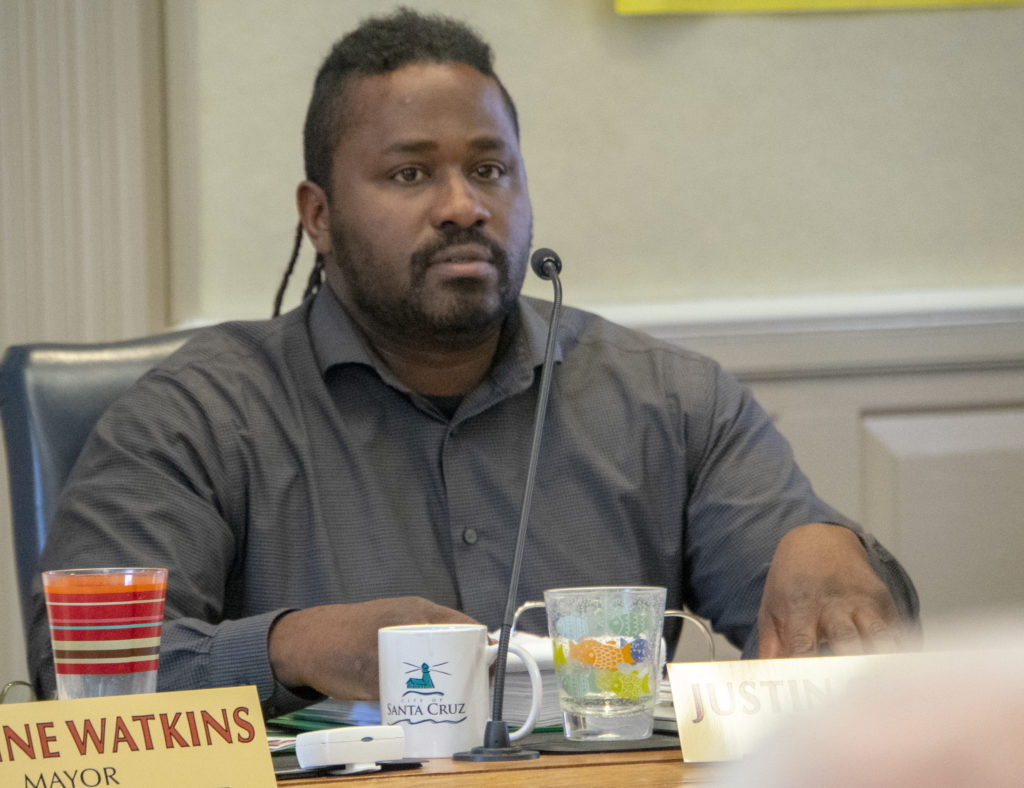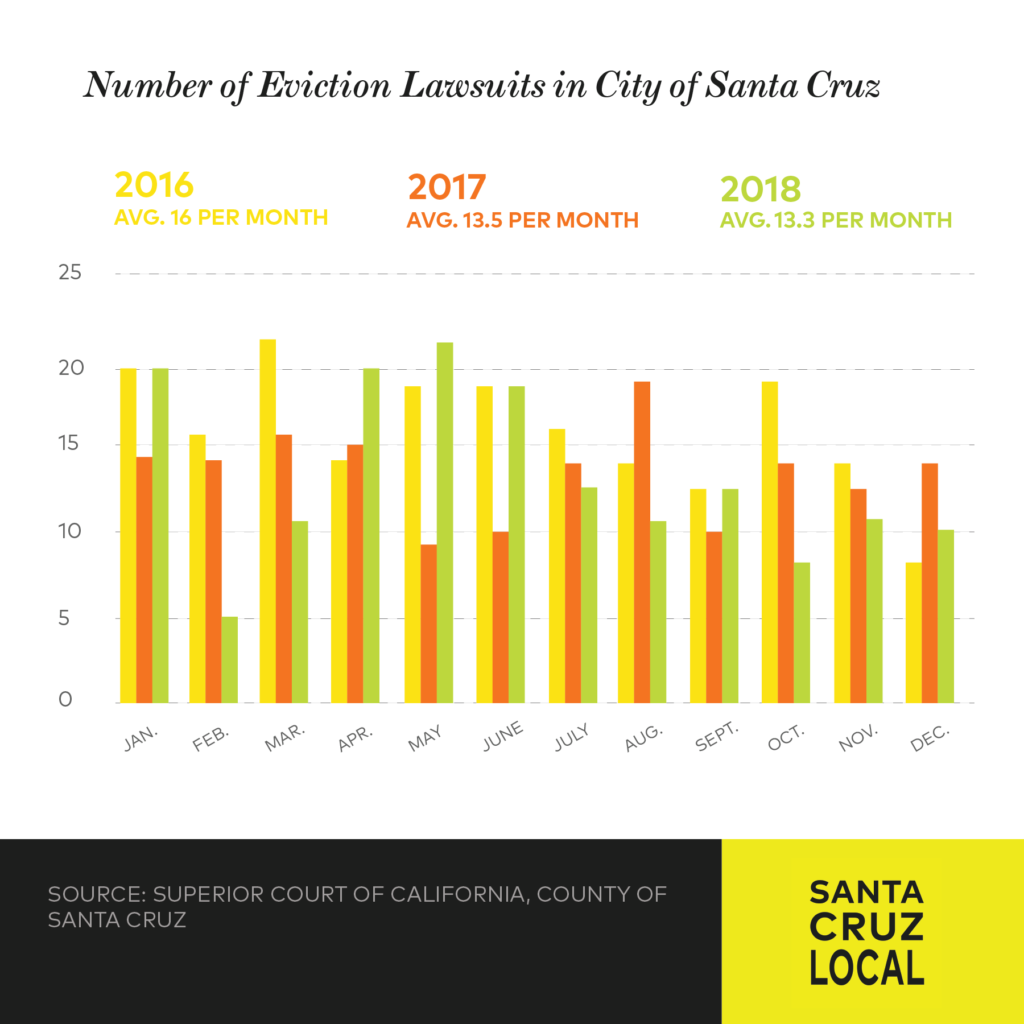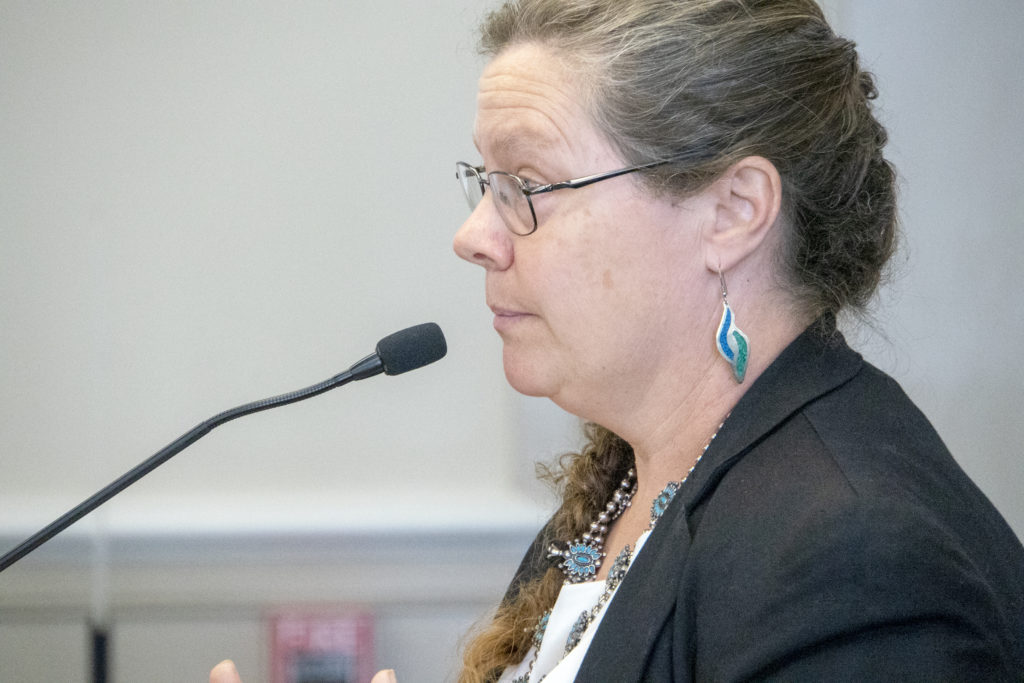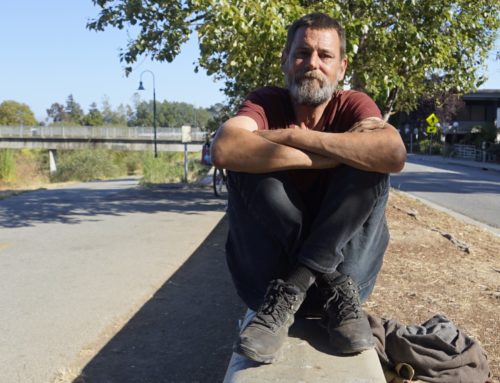You may remember that the Santa Cruz City Council was putting together a task force on tenant protections. It was a step toward potential new housing laws in the city. On Tuesday, a consultant returns to the council. His findings? The atmosphere is too toxic for a task force to succeed. In Tuesday’s meeting, the council goes in a different direction. We brief you on what you need to know about Tuesday’s city council meeting.

TRANSCRIPT
Kara Meyberg Guzman: I’m Kara Meyberg Guzman. And this is Santa Cruz Local.
You may remember that the Santa Cruz City Council was putting together a task force on tenant protections. It was a step toward potential new housing laws in the city. Well, on Tuesday night, a consultant came back to the council. He said he talked to people on all sides of the housing divide. His conclusion? The atmosphere is too toxic for a task force. He recommended against it. So the City Council decided to go a different direction. Stephen Baxter has more.
Stephen Baxter: A consultant from Sacramento State University, Dave Ceppos, put his findings in stark terms. The sides for and against rent control are too entrenched in Santa Cruz to get anything done. At least right now. Here’s what he said.
CEPPOS : I feel badly for this community. I mean to say that ….this community is about to go on war footing for the next two years. That’s my assessment.
He spoke to residents, everyone on the city council and some city staff members. A task force would have taken months and cost up to $250,000. The consultant was paid $40,000 for the initial work.
Another reason not to pursue the task force? The city council members own divisive behavior around housing policy and homelessness. The consultant brought up behavior online and in council meetings. He said the task force is also bound to fail because of a recall effort against councilmen Drew Glover and Chris Krohn. Their opponents are collecting 8,000 signatures to kick it off. Which goes to show how dysfunctional things are right now.
The consultant even apologized that he was starting to sound like a marriage counselor. He told the council members that they should validate each other’s feelings, honor each other’s stories and not challenge them, be accountable for your behavior and try to move to the center.
So the council decided not to pursue the task force.
Vice Mayor Justin Cummings drove the discussion for the next steps.
CUMMINGS: This issue around rental housing that folks have been saying that we need more data on it and I think this might be a good mechanism to do so.
He wants to collect data on evictions, rent increases and the number of tenants who get notices to move out. The council agreed to have staff look into gathering those numbers. The city staff is supposed to come up with suggestions about how to do it at the council’s June 25 meeting.
Now, you loyal Santa Cruz Local listeners might recall that we’ve collected some of rental data already.
Here are two key points from our previous reporting.
- The city’s rental inspection program tracks numbers of rental units. But its methods are not completely precise. The city has about 11,400 rental units as of January, according to the city. That’s about 200 fewer units than the city had in 2017.
- The number of court ordered eviction cases has dropped slightly to about 13 cases per month in 2018. It was about 16 eviction cases per month before during the past two years before that. So the number of eviction court cases in the City of Santa Cruz are going down, according to Santa Cruz County Superior Court records. Of course, not all tenants are kicked out through formal evictions. Many tenants just leave when the rent goes up.

Previously, we recommended that the city collect more data and on its rental inspection form. It’s a form that landlords already have to fill out for the city. So why not add a few questions? Questions like how much rent is charged, how much did the rent increase from the year prior, and how many notices to quit has the landlord handled, for example.
All of the city’s actions come in the wake of the state’s slow movements on tenant protections and housing reform this year.
A raft of bills this year aimed at protecting tenants in the state either failed, were delayed or were watered down. Of the eight tenant protections bills proposed this year, only three advanced last month.
- A bill that would have created a rental data registry, was delayed for a year.
- Another bill aimed at stopping exorbitant rent increases, AB 1482, was scaled back.
MUSIC
KMG: Here’s what else you need to know about Tuesday’s meeting.
The council has cut its way out of a $3.9 million deficit. Its total general fund is $106 million. The budget for the next fiscal year is now balanced.
One of the biggest cuts came from city spending on First Alarm security at the wharf, upper Ocean Street and Harvey West. But the cut wasn’t as big as initially proposed. Several residents objected to the cut. They believe that the security patrols are crucial to neighborhood safety. The council listened.
Also, a $175,000 plan to give each council member an assistant failed. Several council members said they would want an assistant under different financial circumstances. But only Councilmember Chris Krohn voted for the plan.
Since the council decided not to pursue a rental housing task force, it saved about $250,000.
To learn more about the city budget, check out our episodes 22 and 19 on our website, santacruzlocal.org, or wherever you find your podcasts.
The council also advanced a segment of the rail trail plan on Tuesday night. The council denied an appeal put forward by environmental activist Gillian Greensite and San Jose State biology professor Rachel O’Malley. O’Malley, by the way, is married to Councilmember Chris Krohn, who recused himself from the discussion.

Greensite and O’Malley claimed that the section of the proposed rail trail that runs parallel to Bay Street along the wastewater treatment plant is environmentally sensitive. Greensite and O’Malley wanted an environmental impact report. They said that the environmental review that the city conducted was not enough. The city disagreed, and so did the council.
Hundreds of people wrote to the city council in favor of advancing the rail trail plan.
That’s it for this episode. If you haven’t already, sign up for our email newsletter on our website, santacruzlocal dot org.
Music was by Podington Bear, at soundofpicture DOT com.
This is Kara Meyberg Guzman. Thanks for listening to Santa Cruz Local.
Editor’s note: This story has been corrected. The graph of eviction cases above refers to the number of court-ordered evictions in the City of Santa Cruz, not Santa Cruz County.
Stephen Baxter is a co-founder and editor of Santa Cruz Local. He covers Santa Cruz County government.
Kara Meyberg Guzman is the CEO and co-founder of Santa Cruz Local. Prior to Santa Cruz Local, she served as the Santa Cruz Sentinel’s managing editor. She has a biology degree from Stanford University and lives in Santa Cruz.






